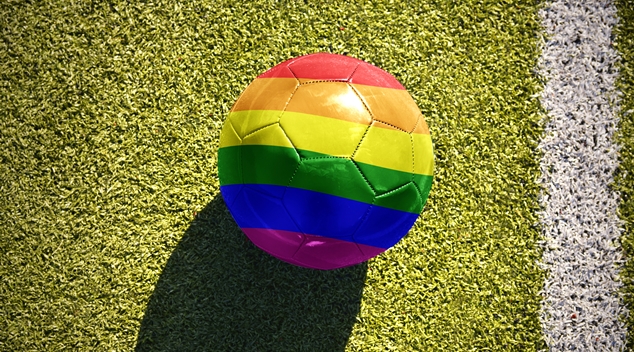
Two complementary studies released from Melbourne’s Monash University this week have taken a closer look at homophobia/biphobia and invisibility in sport.
The world-first studies examine the lack of visible lesbian, gay and bisexual+ in sport, and the experiences of young LGB people who come out to their teammates.
The first study, led by researchers Erik Denison, Ruth Jeanes, Nick Faulkner and Kerry O’Brien, sought to determine if the invisibility of LGB+ athletes is linked to experiences playing youth sport.
The research team recruited a sample of 1173 lesbian, gay and bisexual people between 15 – 21 from the USA, UK, Canada, Australia, New Zealand and Ireland.
Responses showed that just 20% of LGB young people were out to their whole team, with 52% of male respondents and 36% of female respondents having experienced homophobic slurs, bullying or assaults from their teammates.
Those who were out to some or all members of their team were more likely to experience homophobia, compared to those who weren’t out at all (58% vs 40%).
“Public attitudes toward gay people have improved dramatically in recent years and many people make assumptions that we have also seen rapid changes to sporting culture,” said Denison of Monash’s School of Social Sciences.
“Whenever gay athletes come out, commentators suggest it is just a matter of time before others follow. They don’t seem to realise people have been saying that in Australia for a quarter century, since Ian Roberts came out in the NRL.”
“These findings are very concerning, because being the target of homophobic language is harmful to LGB youth and it increases their risk of suicide and self-harm. We hoped those who came out would report less homophobic behaviour, because everyone around them decided to be respectful and control normal behaviours.
“We also didn’t expect that so many young people would report being the target behaviours that included slurs, bullying, assaults, and derogatory jokes.”
The second study, led by Denison, Jeanes, Faulkner and Daniel Toole, looked specifically at teenage and adult male athletes and their use of homophobic language with the goal of developing targeted solutions. Separate studies looking at discriminatory attitudes that impact lesbians and bisexual women are also underway.
Surveying teenage male rugby union players in South Australia, and an international sample of Australian Ice Hockey League players, the respondents were asked to self-report homophobic slurs they or their teammates used.
The survey also included measures for subtle and overt homophobic attitudes, and assessment of ‘social norms’.
More than half of respondents reported using homophobic slurs, and almost 70% reported their teammates used homophobic language.
Athletes with positive attitudes towards gay people were just as likely to use slurs as those who had negative opinions. The language was found to be driven by a desire to be accepted by teammates,” Denison said.
“If LGB youth hear homophobic slurs being used by their teammates, it is understandable why they would think this language is motivated by prejudice and feel the need to hide their sexuality or leave sports.”
“Sports organizations typically also assume this language is driven by prejudice, which is why almost all education campaigns focus on ‘tackling homophobia.’ However, these approaches are clearly not working. Homophobic language remains common and gay people remain invisible.”
“Most male athletes seem to use homophobic language because it helps them fit in and be accepted by others on their team, rather than to express hate or prejudice. Regardless of their motivation and intent, this language is very harmful to the health of gay people,” Denison continued.
“Sports leaders have a legal responsibility to stop this behaviour which is harmful to the health of all LGBTQ children and youth.”
Recommendations attached to both studies urge sporting organisations to fulfil their legal obligation to put a stop to homophobic language in sport, with a focus on shifting norms through education about specific words or behaviours.
Professional teams and leagues are also urged to stop focusing on hosting pride games alone, rather supporting the adoption of pride games by all local amateur teams, and training for team captains to set the standards of behaviour.
The studies have been released at the same time as the international Out on the Fields report, which highlights the lack of progress on LGBTQ inclusion in sport, despite 50 years of research.
OIP Staff

Love OUTinPerth Campaign
Help support the publication of OUTinPerth by contributing to our
GoFundMe campaign.





